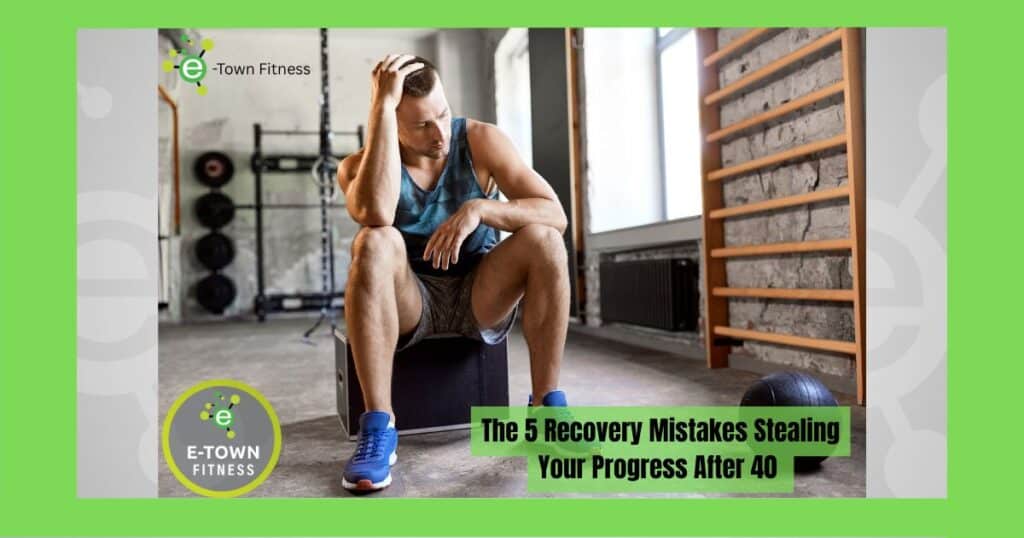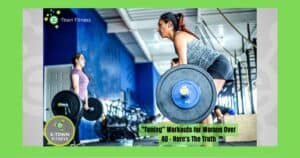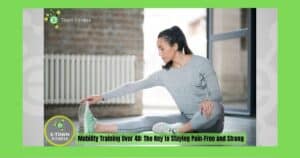Why You’re Always Sore: The Missing Link in Your Recovery
You show up to your workouts. You push yourself. You follow the program.
So why are you still constantly sore, tired, or feeling like you’re not bouncing back the way you should?
Here’s the truth: If all you’re doing is training, you’re not actually supporting your results.
At E-Town Fitness, we coach clients every week who hit their sessions hard—but don’t realize that recovery is where the results actually happen. If you’re over 40, this becomes even more important.
💤 Recovery Isn’t Just Foam Rolling and Protein Shakes
Recovery is a full lifestyle system, and if any of the following areas are being neglected, your body will let you know—with soreness, fatigue, and stalled progress.
Here are the real recovery habits that matter most:
💧 1. You’re Not Hydrated Enough
Water plays a massive role in muscle repair and energy levels. Even mild dehydration can cause soreness to feel worse and slow down your recovery.
Pro Tip: Aim for at least half your body weight in ounces of water per day (more if you’re training hard or sweating a lot).
🛌 2. Your Sleep Is Inconsistent or Poor Quality
Sleep is when your body heals, rebuilds muscle, and resets your nervous system. No amount of stretching can replace deep, consistent sleep.
7–9 hours per night is ideal—especially if you want to recover from training and manage stress.
🥗 3. You’re Not Fueling Your Body Properly
Your muscles don’t rebuild without the right nutrients—especially protein. A low-protein diet, combined with hard workouts, is a recipe for soreness and stalled progress.
Prioritize protein at every meal, and make sure you’re getting enough calories overall to support your activity.
🚶 4. You’re Sedentary Outside the Gym
You may train 3–4x/week, but if the rest of your day is spent sitting at a desk or on the couch, your recovery is going to suffer.
Low-intensity movement like walking, light stretching, and even mobility work helps increase blood flow and speed recovery.
🧠 5. You’re Ignoring Stress Management
Stress from work, family, or life doesn’t just affect your mood—it affects your nervous system and recovery capacity. Chronic stress elevates cortisol, which can increase inflammation and slow healing.
Try journaling, breathwork, meditation, or even just unplugging from screens to reset.
🏋️ Training Is Just the Spark—Recovery Builds the Fire
Working out tears your body down—recovery is how you build it back up.
At E-Town Fitness, we don’t just coach workouts—we coach lifestyle. If you’ve been hitting the gym consistently but not seeing the recovery, energy, or results you want, it’s time to zoom out and look at the bigger picture.
📅 Book a consultation today, and let’s build a system that includes training, nutrition, recovery, and coaching that actually works for your body and your life.



